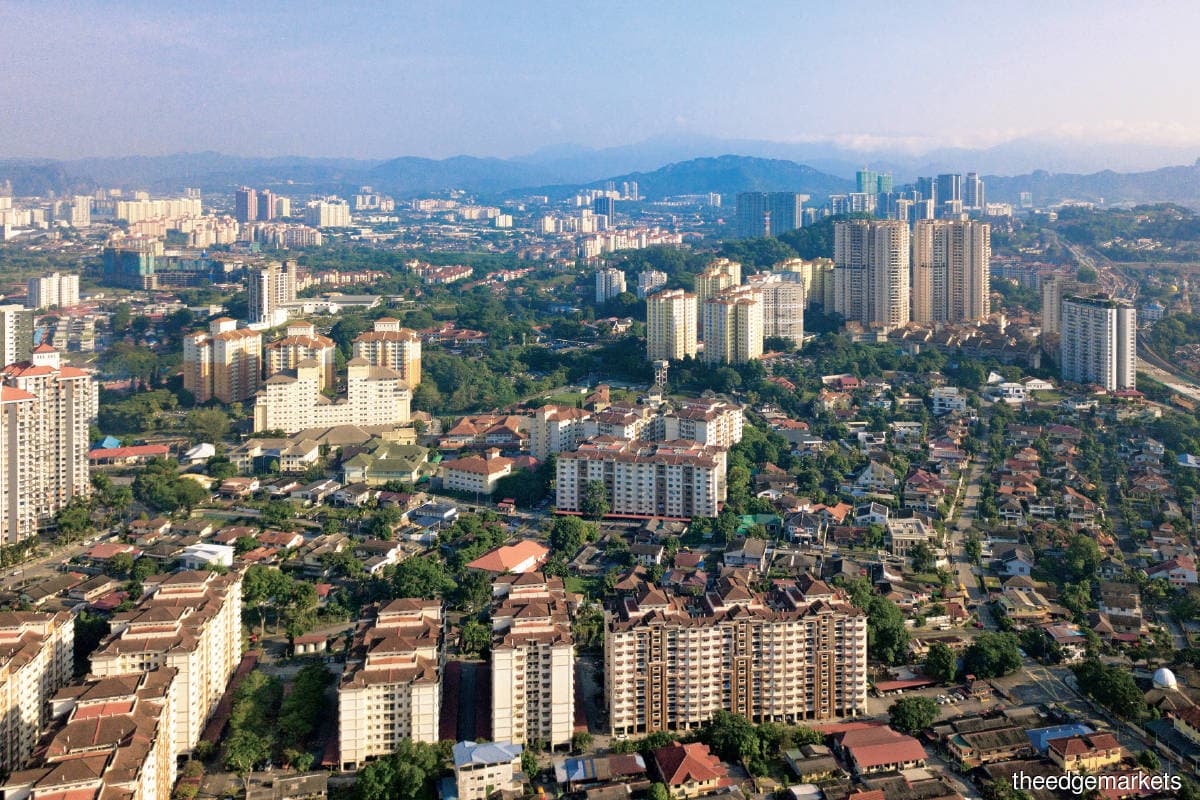
This article first appeared in The Edge Malaysia Weekly on August 10, 2020 - August 16, 2020
REAL estate is an asset class that attracts investors in a low interest rate environment. Recall that property prices started climbing after the 2008 global financial crisis and peaked in 2013, before cooling measures were put in place to curb rising prices. These included the cessation of the highly popular developer interest-bearing scheme (DIBS).
The surge in market interest in the property industry in the early part of the last decade was also partly driven by the wealth accumulated from the stock market. In October 2008, the FBM KLCI plunged to a low of 829.41 points before embarking on an uptrend to hit a peak of 1,882.71 points in June 2014, equivalent to a gain of 127% in less than six years.
Will the same thing happen this time around on the back of low interest rates and the wealth effect from stock market gains?
Lee Heng Guie, executive director of the Associated Chinese Chambers of Commerce and Industry of Malaysia’s (ACCCIM) Socio-Economic Research Centre (SERC), does not rule out that capital gains made in the equity market may flow into the property market as investors switch to alternative asset classes. “Property investment is considered a natural hedge against inflation that can help investors preserve capital, soften the effects of inflation, generate income and create capital appreciation. Also, adding property to a portfolio helps increase investment diversification. It is like not putting all your eggs in one basket,” he tells The Edge.
Lee says the initiatives to rejuvenate the property market will help lift buying sentiment. The measures include the reintroduction of the Home Ownership Campaign (HOC) with stamp duty waivers and rebates from developers, exemption of Real Property Gains Tax and higher loan-to-value margin lending ratio to 90% from 70% for the third property purchased at RM600,000 and above.
UOB Malaysia senior economist Julia Goh says it is possible that some people may channel their profits from the stock market into property. “However, some may still be hesitant to undertake any large commitments, given the uncertain outlook, particularly if there are concerns about job and wage stability.”
Nonetheless, industry experts do not foresee the risk of a property bubble developing as prices remain elevated on top of the persistent property overhang issue. It is worth noting that during the last property boom, anticipation over the construction of the Mass Rapid Transit as part of the Greater Kuala Lumpur Plan also contributed much of the interest in property in the Klang Valley, especially along the proposed rail lines.
Sunway University economics professor Dr Yeah Kim Leng says the positive wealth effect of stock market valuation on consumer spending is well documented. Various studies have found evidence of a spillover from stock market gains into the property market as investors seek to diversify their portfolios as well as tap growth opportunities in other asset classes.
“The property market, which has been weighed down by oversupply, will be enlivened by a strong stock market performance. But the late-stage rebound will not be as exuberant as during the early market boom,” he adds.
Yeah opines that it will take years to address the overhang issue as the property cycle no longer ranges from five to 10 years.
CBRE | WTW managing director Foo Gee Jen is not too worried about an overheating property market. “It will be difficult to go up to another peak. During the 2008 global financial crisis, the base value of properties was still very low. The average price was about RM300,000,” he says.
“Then it started climbing in 2010. But things went sideways from 2014 to 2015, with a very small appreciation from 2015 to 2020. Perhaps now, the interest will be more on a need basis, rather than an investment basis.”
Foo thinks it may not be a good time for those who are just looking for short-term gains from property purchases due to the many uncertainties in the market, but it is a good opportunity to buy unsold stock from developers.
Given the pandemic, he is of the view that property prices beyond the affordable housing segment will remain flat or even decline.
“Buyers and sellers are adjusting their positions in both primary and secondary markets. The higher-end and SoHo/SoVo segments will be much affected by Covid-19 because not many people will go into those segments. For other segments, I don’t see price appreciation until the pandemic is over,” says Foo.
However, he notes that the extension of the loan moratorium period will help prevent a hard landing, with an uptick in property sales after months of lockdown.
In a July 28 note, MIDF Research says it expects the outlook for new property sales to improve gradually in the second half of the year, thanks to incentives offered under the Short-Term Economic Recovery Plan (Penjana). “We expect the incentives to stimulate buying interest and support new property sales.”
Data from the National Property Information Centre (Napic) shows that unsold completed residential units in Malaysia eased for four consecutive quarters, from 2Q2019 to 1Q2020. The number of unsold completed residential units stood at 29,698, down 3.2% quarter on quarter and 9.8% year on year.
Save by subscribing to us for your print and/or digital copy.
P/S: The Edge is also available on Apple's AppStore and Androids' Google Play.
